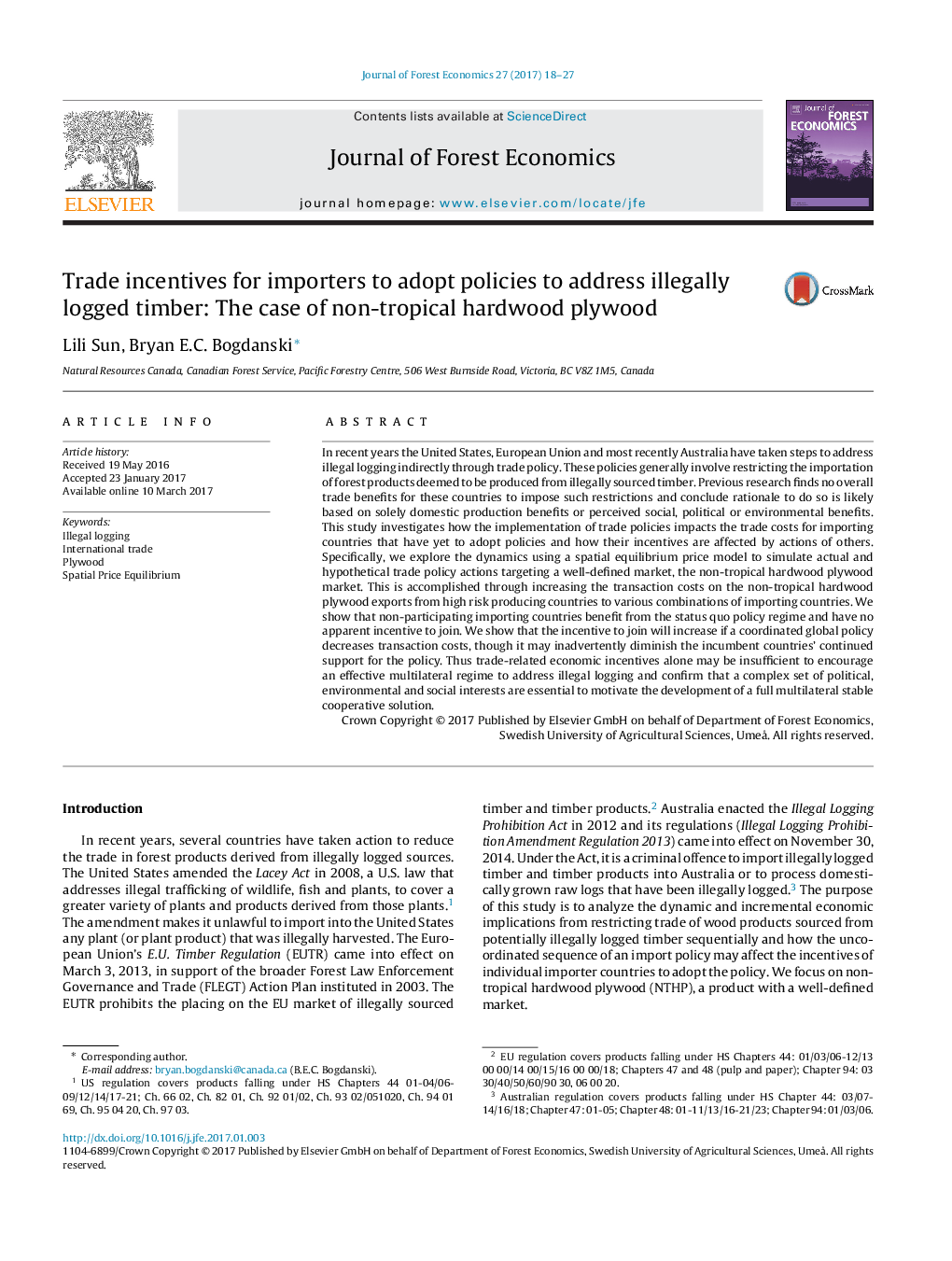| Article ID | Journal | Published Year | Pages | File Type |
|---|---|---|---|---|
| 6459903 | Journal of Forest Economics | 2017 | 10 Pages |
In recent years the United States, European Union and most recently Australia have taken steps to address illegal logging indirectly through trade policy. These policies generally involve restricting the importation of forest products deemed to be produced from illegally sourced timber. Previous research finds no overall trade benefits for these countries to impose such restrictions and conclude rationale to do so is likely based on solely domestic production benefits or perceived social, political or environmental benefits. This study investigates how the implementation of trade policies impacts the trade costs for importing countries that have yet to adopt policies and how their incentives are affected by actions of others. Specifically, we explore the dynamics using a spatial equilibrium price model to simulate actual and hypothetical trade policy actions targeting a well-defined market, the non-tropical hardwood plywood market. This is accomplished through increasing the transaction costs on the non-tropical hardwood plywood exports from high risk producing countries to various combinations of importing countries. We show that non-participating importing countries benefit from the status quo policy regime and have no apparent incentive to join. We show that the incentive to join will increase if a coordinated global policy decreases transaction costs, though it may inadvertently diminish the incumbent countries' continued support for the policy. Thus trade-related economic incentives alone may be insufficient to encourage an effective multilateral regime to address illegal logging and confirm that a complex set of political, environmental and social interests are essential to motivate the development of a full multilateral stable cooperative solution.
